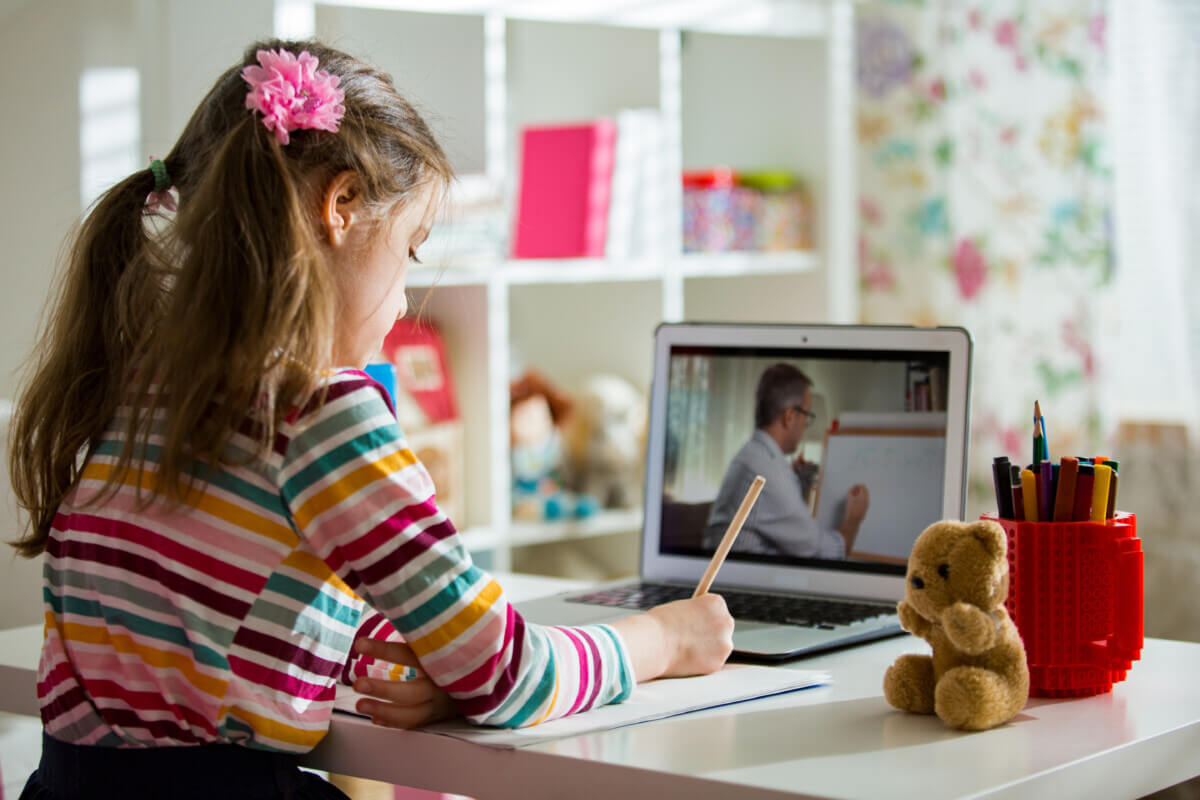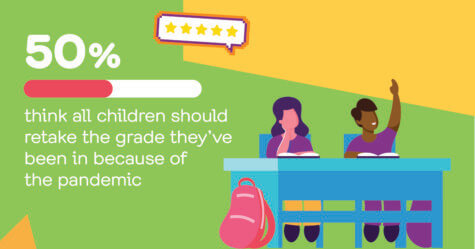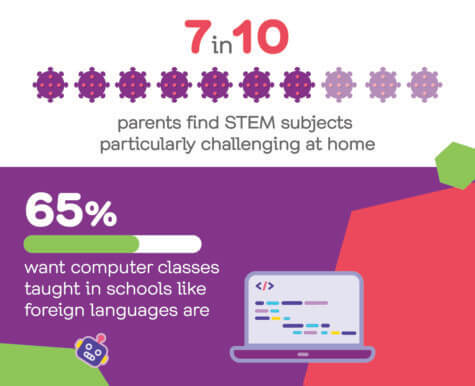
(© Aleksandra Suzi - stock.adobe.com)
NEW YORK — While some government officials see remote learning as the future of schooling, many parents aren’t buying it. In fact, the average parent estimates their child has regressed two whole grade levels during the coronavirus pandemic. Half of American parents even think all children should retake their grade from 2020 this fall because of COVID.
The new survey of 2,000 American parents with children between eight and 13 examined the increasing education gaps kids are facing as people begin to think of a permanent return to in-person education this year. Two in three parents are terrified their kids now hate learning because they’re so frustrated with remote classwork. Another 63 percent say they’ve noticed decreased engagement in their child’s schoolwork.
Already tricky STEM subjects like Math and Science that had students on the ropes pre-pandemic now have seven in ten parents noting these topics are particularly challenging at home. OnePoll conducted the research on behalf of BYJU’S Future School, with researchers finding that parents are struggling alongside their children.
Summer school is definitely in session

The summer is presenting an opportune time for many parents hoping to have their kids catch up. Two in three parents say they’re considering signing their kids up for enrichment programs. Half of those surveyed add they’ll be using the summer to make sure their children are ready to crack open new textbooks in-person this fall.
Among those planning to hit the books this summer, the average parent is dedicating two hours a day to go over key concepts with their youngsters. When it comes to methods parents will be using to make it happen, one in five (21%) will turn to old workbooks and worksheets. Fifty-five percent plan to break out the flashcards. Other parents are opting for a more modern approach by using educational TV shows or computer games (both at 55%).
“After a difficult school year, summer is the perfect time for parents to prioritize enrichment programs that will excite their kids and get them engaged in learning again. The math and coding classes should focus on the joy of creating and problem-solving while maintaining the child’s freedom to chart their own path,” a spokesperson for Byju’s BYJU’S FutureSchool says in a statement.
Even in-person classes need a refresher course

Three in five parents would describe their child as a “tech wizard” but 66 percent don’t know how to foster these skills since their kids’ knowledge has already surpassed their own. That’s why 65 percent want computer classes taught in schools, just like foreign languages are.
“Much like learning a foreign language, playing a sport or engaging in music education, or learning skills like coding programs encourages creative thinking and problem-solving, which can be useful once kids are out of school,” the spokesperson for BYJU'S FutureSchool adds.










